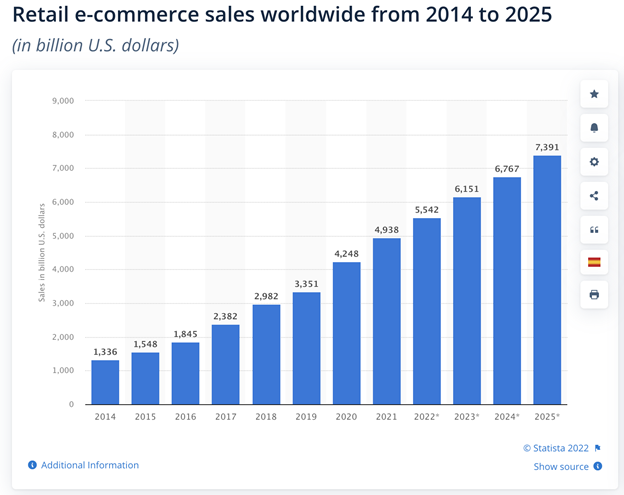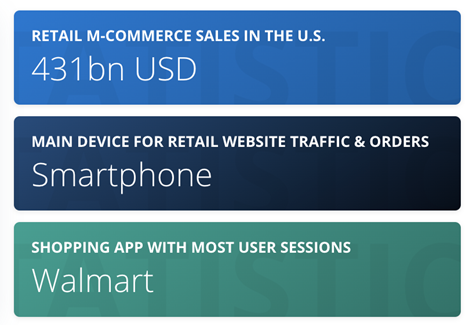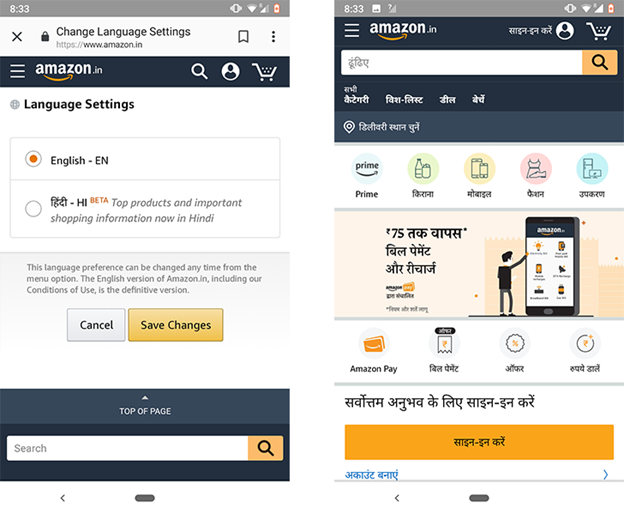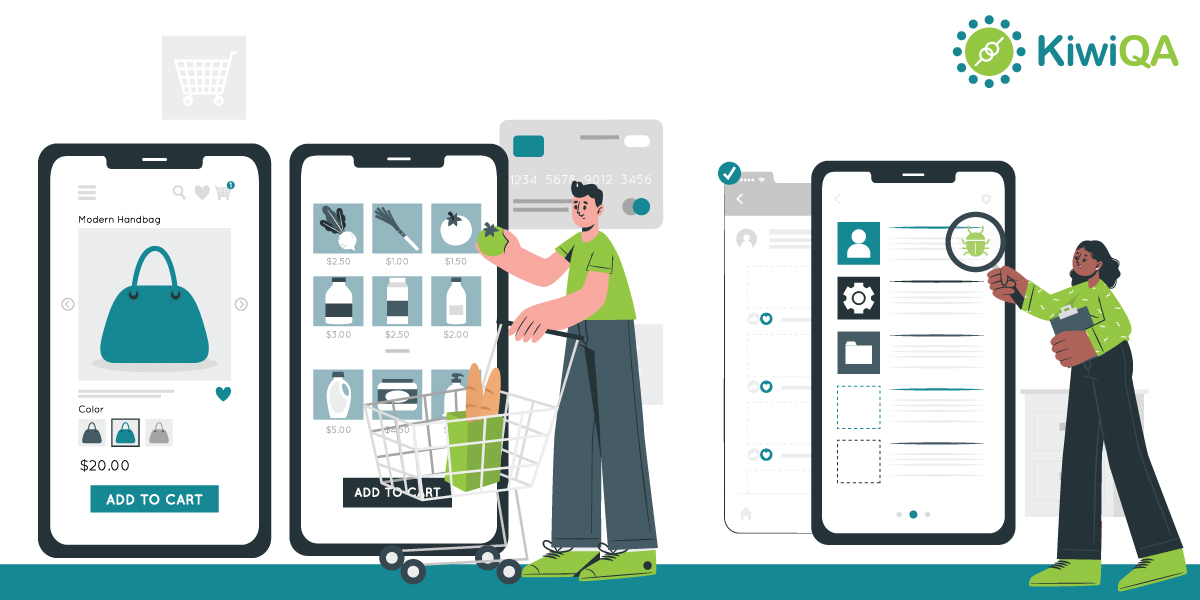There have been significant changes in the way consumers across the globe do banking, shopping, bill payments, and more. Rapid proliferation of smartphones and mobile internet is enabling consumers to perform activities from the comfort of their homes.
The Internet has also opened up a plethora of opportunities for new-age entrepreneurs who are leveraging the potential of mobile and internet to make lives easy for the consumers. E-commerce is one of the sectors that has witnessed immense growth, whether it is developed economies or developing economies.
As per Statista[1], global retail e-commerce sales is expected to grow to USD 4.9 trillion dollars (i.e. 50 percent jump) from 2021 ~ 2025. However, this also means that you would have to ensure that a top-quality e-commerce website (or app) is available for the end-users. Be it B2B (Business to Business) or B2C (Business to Consumer), your customers would have options up their sleeves.

Source
Thorough testing of e-commerce website and mobile application helps in providing an awesome experience to the users of the platform. Mobile responsiveness, end-user experience, security, page load times, etc. are some of the essential aspects that must be taken care of when developing and testing an e-commerce website (or application).
Partnering with an experienced e-commerce testing services company will further help in expediting the testing process. Such an approach will be instrumental in accelerating the time to market, thereby enabling you to win customer confidence.
E-commerce website as well as mobile application is a complex piece of software since a wide range of user flows need to be created when building an e-commerce site. In simple terms, a user flow diagram in an e-commerce context indicates how the user (or visitor) to the site completes tasks, navigates through the site, adds desired items to the cart, and more.
In this blog, we look at some of the integral use cases that have to be thoroughly tested in your e-commerce application. Please note that application in the blog refers to a website (and mobile application). Also, the use cases being cited are almost common for different types of e-commerce portals (i.e. B2B, B2C, D2C, etc.).
So, let’s get started…
What is e-commerce testing?
As the name indicates, e-commerce testing is the process of performing functional and non-functional tests for verifying different features of the e-commerce website (and application).
Since consumers have the flexibility of purchasing products from different mediums like web & mobile, appropriate tools and frameworks must be used for web and mobile testing. E-commerce testing encompasses testing of the front-end and back-end aspects of the website.
For instance; Selenium, Cypress, and other such frameworks can be used for testing interactions with the elements in the DOM (Document Object Model). On the other hand, back-end testing is used for checking the server side or database side of the e-commerce portal. It is a known fact that there exists a good amount of mobile and OS fragmentation hence, it is important to prioritize devices and view port sizes that are heavily in use by the customers in the target market.
You should leverage the potential of cloud technologies to automate the testing of the e-commerce applications.
Also Read – Ultimate Checklist for E-Commerce Website Testing
Aspects to test in E-commerce Applications
Now that we have covered the important aspects of e-commerce testing, let’s look into the major types of testing as far as e-commerce applications (or websites) are concerned:
Functional Testing
Like any other form of software product, functionalities of the e-commerce application matters to a great extent. Some of the sample functionalities in e-commerce app are:
- New user signup
- Existing user login
- Addition of items to shopping cart
- Search and filters
- Order tracking
- Customer service [via chatbots, etc.]
Unit testing of each of the critical modules (e.g. login, search, product display, etc.) has to be done without any doubt. However, unit testing itself might not be sufficient to unearth issues that are discovered when the modules are integrated together.
Functional and Integration testing of all the important modules of the e-commerce application will be helpful in verifying the user flows. A sample functional test is logging into the application, searching for the desired item, adding item into the cart, and checking out the item to complete the transaction.
Compatibility Testing
In today’s times, customers have the flexibility to access the e-commerce website (or app) on devices with different view-port sizes (i.e. desktops, tablets, mobile phones, and more). You cannot control customer’s preferences hence, it becomes important to do a cross browser (or compatibility) testing across different devices, view port sizes, browsers, and operating systems.
Along with the e-commerce web app (i.e. e-commerce application that runs in the web browser on the phone), the app built for iOS and Android devices needs to be tested in a thorough manner.

Source
You can perform functional testing to a certain extent on emulators and simulators, however end-to-end testing of the application must always be done on real mobile devices. Rather than building an in-house mobile device farm, it is recommended to run tests on real devices on the cloud. The QA team must make a conscious decision after doing Emulators vs Simulators vs Real Devices comparison, thereby helping maximize the test and device coverage.
Partnering with an experienced e-commerce testing company will go a long way in expediting compatibility testing as their teams can help in identifying the devices on which the cross browser tests must be performed on priority.
Also Read – Compatibility Testing: Checklists and Crucial Things You Need to Know About It
Security Testing
Irrespective of the size of the business, e-commerce companies must adhere to SOC2 and GDPR compliance. As per reports, the global e-commerce sector witnesses close to 32.4 percent[2] of online threat attacks. Any kind of attack (even of minimal scale) results in loss in business, reputation damage, and lower consumer confidence.
Whether an e-commerce website is built on Shopify, other CMS (Content Management System) or is custom-made, it still involves financial transactions where customers buy products from the website. Since financial transactions are involved, e-commerce apps need to invest heavily in ensuring that customer data is safe and financial transactions adhere to all the necessary security standards.
Along with security testing, companies also need to focus on penetration testing (or pentest) since there are significant differences between security testing and penetration testing. All these testing practices are instrumental in preventing card frauds, keeping customer information safe & secure, preventing fake reviews, and more.
Zed Attack Proxy (ZAP), Wapiti, W3af, SQLMap, SonarQube, and Iron Wasp are some of the most popular open source security testing tools. Depending on the budget and testing requirements, an e-commerce testing company can help in shortlisting a tool that is suited to your needs.
Here are some of the major types of security tests that must be performed on priority, that too on a regular basis (preferably as a part of the CI pipeline):
- Penetration testing
- Vulnerability scanning and testing
- Security risk assessment
- Ethical hacking, and more
Localization and Internationalization Testing
As an e-commerce app grows bigger, there is a potential that your business might scale to many markets, including the one’s where the non-English speaking audience is the target market. Take the case of a diverse market like India where close to 121 languages are spoken in the country. As an e-commerce company, you can have an upper hand by entering the market by tapping the English speaking elite audience. However, rapid expansion can only happen by tapping the non-English audience.
Consider the case of e-commerce behemoth Amazon, the company could capture a huge market by localizing its platform[3][4]. Key strings, banners, and many other assets on the website (and app) are localized for different languages.

Amazon Hindi
App localization not only involves substantial development effort but also requires thorough localization testing. This also involves choosing the right kind of cloud infrastructure so that localization testing can be performed at scale!
Localization testing and internalization testing are some of the important forms of testing that must be performed if e-commerce websites have to work for a large customer base. We will cover the differences between Localization and Internationalization (or Globalization) Testing in further blogs.
Performance Testing
As per reports[5], visitors to an e-commerce website abandon the visit in case the site takes more than six seconds to load. This is why e-commerce apps should focus on higher page load speeds. A lot of this also depends on the design of the backend and the cloud (or inhouse) infrastructure that is housing the site.
This is why performance testing of the e-commerce app becomes important, as it helps in analyzing and evaluating the app’s speed, scalability, and reliability. E-commerce apps witness a huge load or traffic during the holiday season (e.g. Christmas, Diwali, New Year, etc.) or when items are being sold at heavy discounts.
Performance tests help in evaluating the app’s stability under different loads of traffic. Performance (or load) testing of e-commerce apps lets the development, testing, and DevOps understand about the app’s breaking point, thereby helping understand at what point the app could witness performance issues.
Here are the major forms of performance tests that need to be performed for ensuring that e-commerce app works without any performance glitches:
- Load testing
- Stress testing
- Scalability testing
- Spike testing
Apart from the above mentioned forms of testing, e-commerce companies must also invest heavily in payment testing so that their customers can complete purchases without any payment failures or glitches.
Also Read – [Guide] Best Practices in Performance Testing
It’s A Wrap
There is a huge amount of difference between testing normal apps (or websites) vs. testing e-commerce apps. Due to complex business flows, e-commerce app developers or companies need to focus heavily on testing.
An experienced e-commerce testing company like KiwiQA can help e-commerce firms in testing various aspects of the app at a faster pace. This will accelerate the time to market due to which the respective app will have a huge upper hand over its competition.









